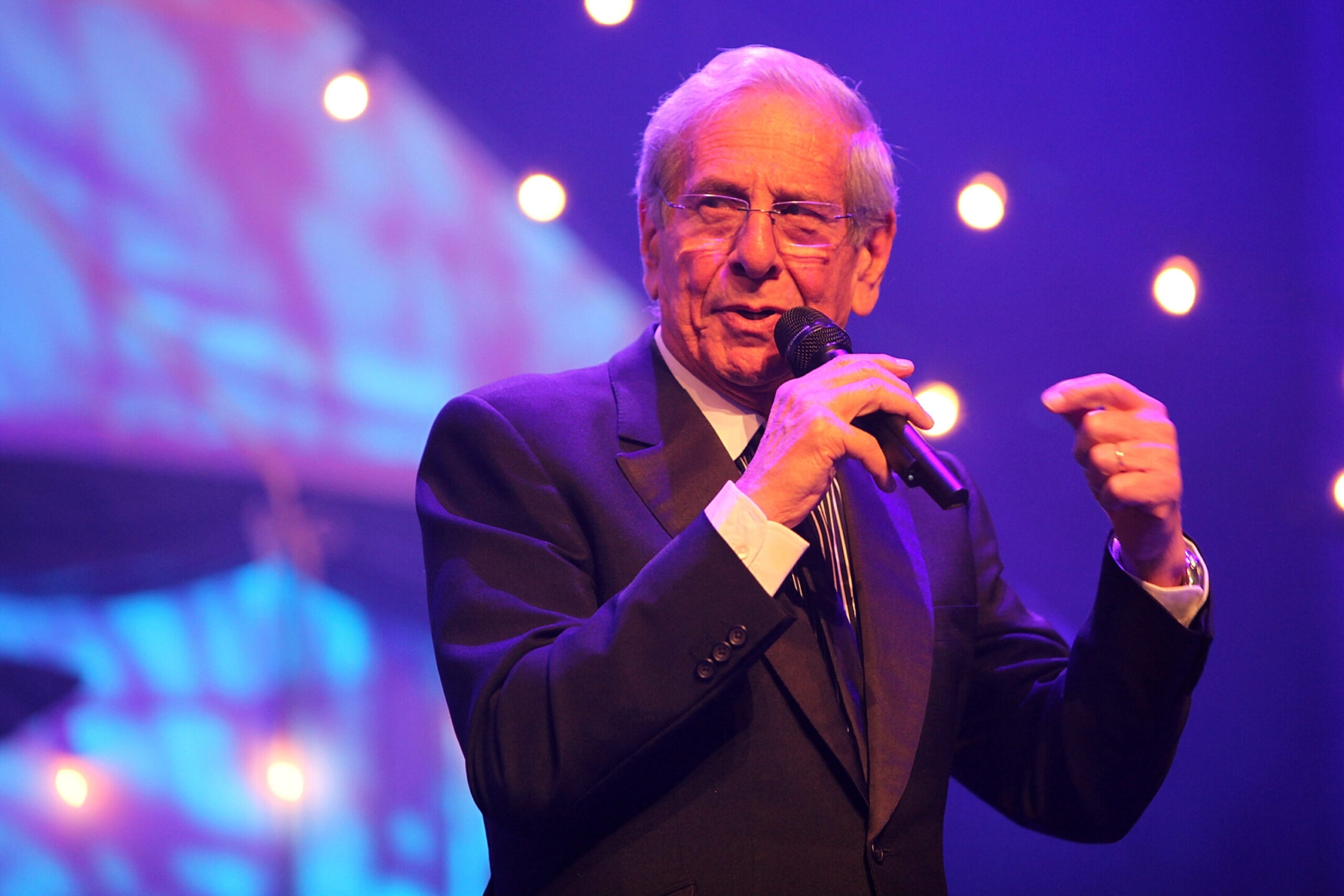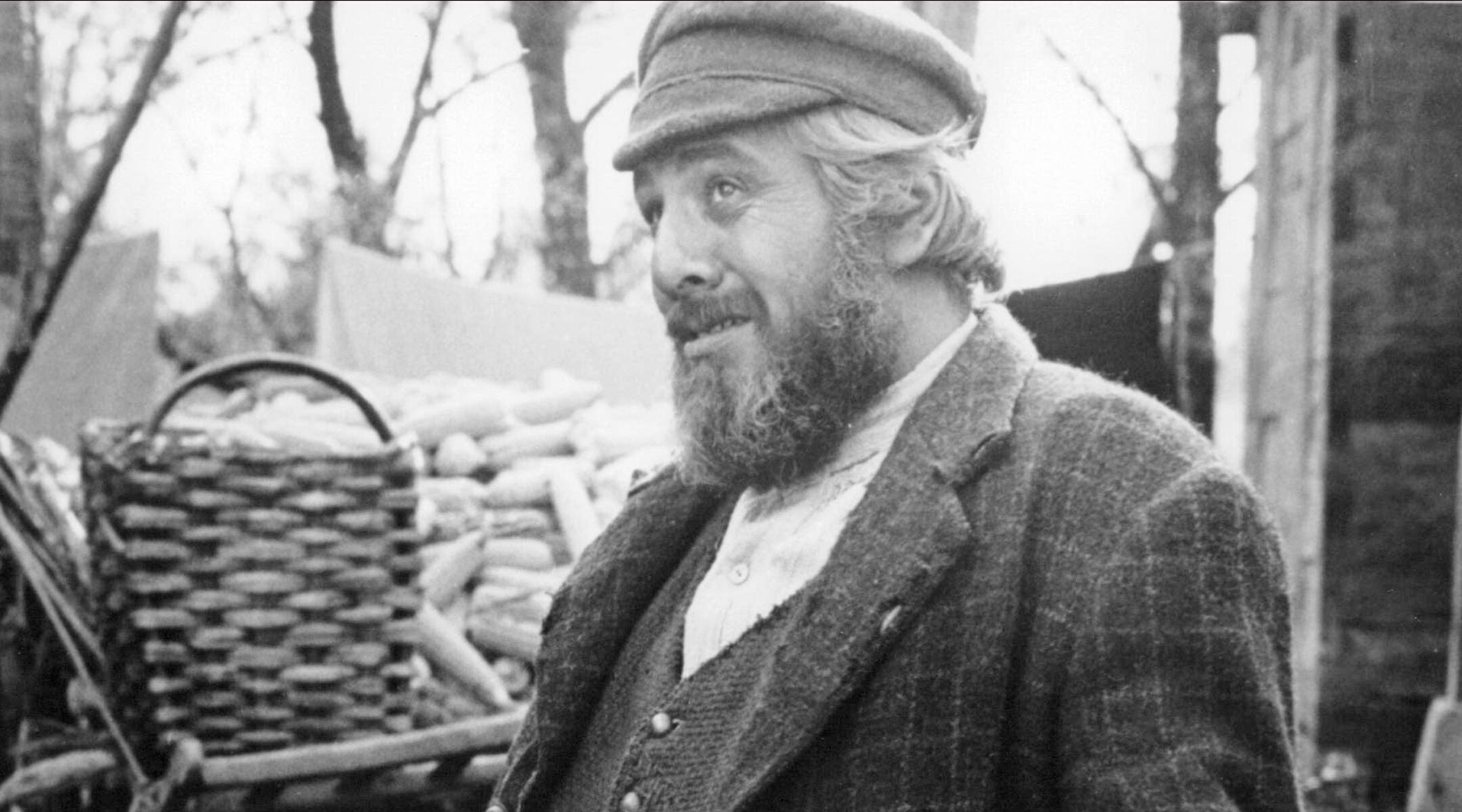(JTA) — Chaim Topol won a Golden Globe for his portrayal of an immigrant to Israel, stepped off the stage in London to fight for his country and had his sketches of Israeli presidents turned into postage stamps.
But the actor was, by far, best known for his embodiment of Tevye the Dairyman in “Fiddler on the Roof,” first in the Israeli and London stagings and then in the 1971 movie that brought the musical about poor shtetl Jews to the masses.
Topol died Thursday in Tel Aviv at 87, a day after his family announced that he was near death. He had suffered from Alzheimer’s disease for some time.
Born in 1935 in Tel Aviv, Topol served in the Israel Defense Forces entertainment unit before embarking on a career on stage and screen that took him around the world. In 1967, he appeared as the lead character in London’s staging of “Fiddler on the Roof,” which had been a breakout hit on Broadway three years before. In his early 30s at the time, he wowed audiences and critics with his portrayal of an older character.
But it was when he turned his character over to an understudy that his profile truly exploded. It was June 1967 and Israel was locked in a war with several Arab states; Topol was called up as a soldier and returned to Israel to serve in what would ultimately be known as the Six-Day War. Israel’s swift defeat of an alliance of enemies caused the world to notice the young country and the actor who took part in its victory.
“He had left London as a star; he returned as a hero,” Alisa Solomon wrote in her 2013 book “Wonder of Wonders: A Cultural History of Fiddler on the Roof.” “‘Fiddler’ became a site for celebration, drawing Jews as well as gentiles to the theater — some for repeat viewings — to bask in Jewish perseverance and to pay homage to Jewish survival. The show didn’t change, but the atmosphere around it did.”
In one sign of Topol’s breakout moment, his recording of “If I Were a Rich Man” hit No. 9 on the British charts — besting Aretha Franklin’s “Respect” in July 1967.
From there, Topol was cast in the film production of the musical, beating out Zero Mostel — who put an indelible stamp on Tevye as the star of the original Broadway production — as well as a host of Jewish and non-Jewish movie stars. Using only his last name — purportedly because his first name was easily mispronounced by non-Hebrew speakers — he ultimately starred in more than 30 films in both English and Hebrew, published two books and released multiple albums.

Chaim Topol performs at the SeriousFun London Gala 2013, benefiting a growing community of camps and programs serving children with serious illnesses and their families and established by Paul Newman in 1988, Dec. 3, 2013. (David M. Benett/Getty Images)
In Israel, Topol was perhaps best known for his breakout role as the lead character in the 1964 film “Sallah Shabati,” about the difficulties faced by a Mizrahi immigrant family. The Ephraim Kishon film was Israel’s first Academy Award nominee in the foreign language film category and earned Topol a Golden Globe for best new actor. The casting of an Ashkenazi actor as a Mizrahi character — and one who embodied many of the stereotypes held at the time by Israel’s Ashkenazi elite — would prove controversial, although the film is still regarded as a touchstone.
Topol won Israel’s most presigious award, the Israel Prize, for his lifetime of achievement in 2013.
“From Fiddler on the Roof to the roof of the world, Haim [sic] Topol, who has passed away from us, was one of the most outstanding Israeli stage artists, a gifted actor who conquered many stages in Israel and overseas, filled the cinema screens with his presence and above all entered deep into our hearts,” Israeli President Isaac Herzog said on Twitter.
Herzog noted Topol’s contributions to Israel not just through the arts but through his service in the army and his dedication to a nonprofit camp for children with medical needs in Israel’s north. Topol was board chair of the Jordan Youth Village, modeled after Paul Newman’s Hole in the Wall Camp in the United States, until his death.
He is survived by his wife Galia, an actor whom he married in 1956; three children and their children.
JTA has documented Jewish history in real-time for over a century. Keep our journalism strong by joining us in supporting independent, award-winning reporting.






